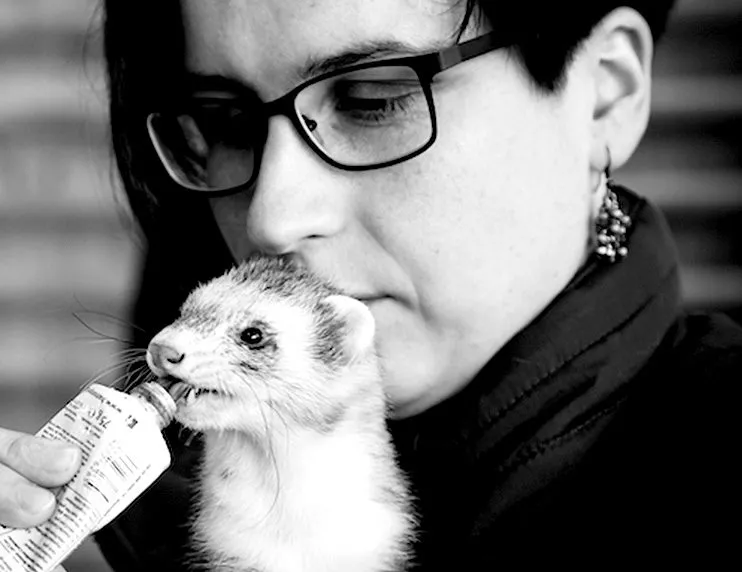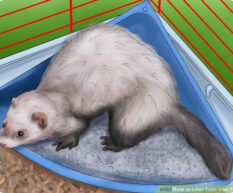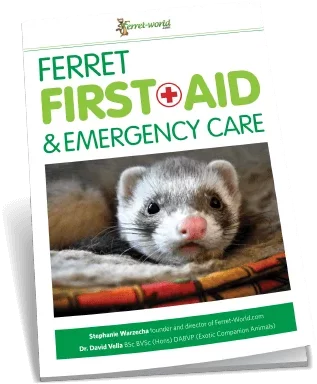Ferret News
Preventative Care in Middle-Aged and Senior Ferrets: What Else Can We Be Doing?
By Dr. Linda Viteznikova

The majority of middle-aged and older ferrets suffer from one or more diseases. The best way to catch these diseases early, when treatment is most effective, is by taking our ferrets to preventative check-ups.
The most common diseases in European countries are:
- Insulinoma (tumour of beta cells of Langerhans islets in pancreas)
- Hyperadrenocorticism (disease of adrenal glands of different origin – hypertrophy/neoplasia),
- Heart problems, which usually means HCM (hypertrophic cardiomyopathy) and DCM (dilated cardiomyopathy), valvular defects, or regurgitation on the aorta valve
- Skin neoplasms (usually more or less benign),
- Neoplasia of gastrointestinal tract (more often mouth/stomach/small intestine)
- Lymphoma.
In general, the plan for preventive care for middle-aged and older ferrets in my practise is based on this procedures:
- Glucose level check-up. This helps me to detect insulinoma. This should be done once a year from 3 years of age. When the ferret turns 6 or older, it should be done twice a year.
- Deslorelin implant. This implant is usually placed in ferrets around 3 years old to prevent adrenal gland disease and is replaced every 2-2 ½ years.
- Echocardiography. This should be performed once a year from age 4, or earlier if there are heart problems or a family history of heart problems.Complete biochemistry check-up and urine examination. This is done to evaluate kidney and liver function.
- Inspection of the skin and anal gland. This inspection usually should be performed during every clinical examination/preventive examination in order to find irregularities of the skin/anal gland tumours.
- Mouth inspection. This is usually done during every clinical examination/preventive examination in order to find tumours in the mouth, since these must be treated ASAP. Removing mouth tumours may require radical measures, including possibly removing the affected jaw. These inspections can also help locate tartar and odonto lithiasis, which can be treated at home with jelly, enzymatic toothpaste, and/or Plaque-Off). They can both also be treated by removing odonto lithiasis by laser, polishing teeth with a special paste, and by removing broken and devitalized teeth.
Most of these examinations are non-invasive (OK, blood sampling is a little bit invasive, but just a little bit!) and will give your vet a lot of information about the health status of the patient. This information allows you to start the treatment as soon as possible to improve and prolong the lifespan of your ferret. Ensure that you are proactive in taking care of your middle-aged and senior ferrets, so that they can live the happiest, longest lives possible!
This article originally appeared in Dook Dook Ferret Magazine (Issue 5). To receive 6 new Dook Dook Ferret Magazines per year + get access to other bonuses then join the Ferret-World Membership.




